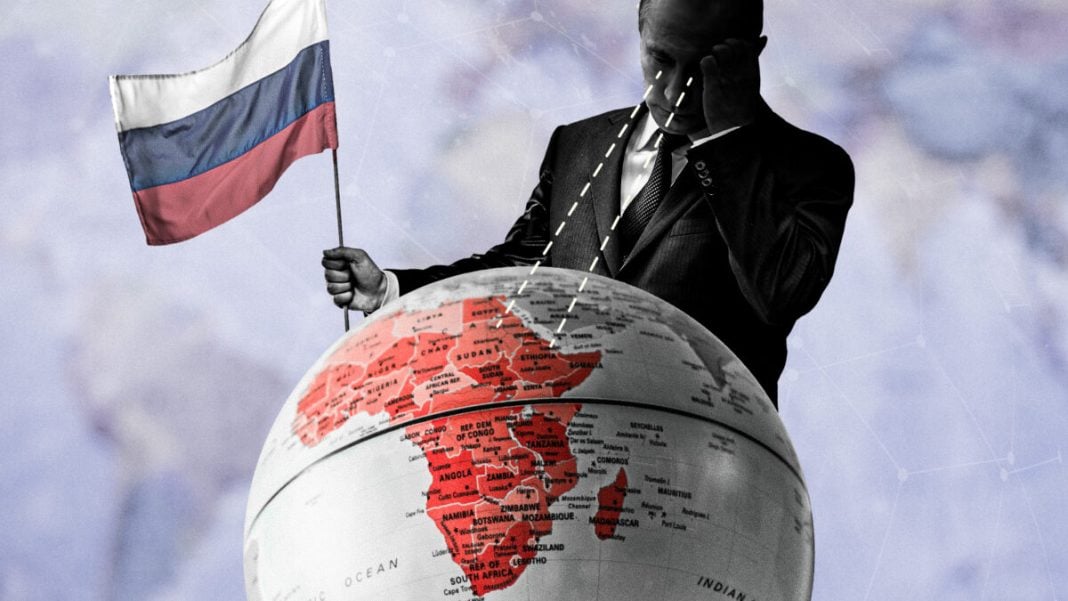By EUvsDisinfo
In an era of growing technological progress and internet penetration across sub-Saharan Africa, Russia has seized the chance to flood the African information landscape with deceptive narratives. Ranging from health to security, these narratives are carried by a vast number of online manipulation levers, part of a wider foreign information manipulation and interference (FIMI) effort by Russia to advance its foreign policy.
Over the past five years, Russia has cultivated a disinformation ecosystem, where fabricated and unverified information often eclipses factual reporting and independent journalism in a number of African countries. Beyond the realm of using information manipulation against the West, this insidious activity undermines trust in democratic institutions and raises significant security concerns for local populations.
While Russia and its FIMI industry assert that the Kremlin is uniquely positioned to provide security and military assistance to nations in need, the reality paints a starkly different picture—one marked by the ongoing deterioration of security and stability. This not only underscores Russia’s inability to meet its commitments but also clearly illustrates a lack of genuine intention to do so. Russia does however intend to further expand its malicious activity across the continent.
What drives Russian FIMI in Africa?
The sub-Saharan nations targeted by Russia share common traits: vast reserves of natural resources, fragile political institutions, significant security challenges, and a legacy of colonial history to contend with.
The motivations behind Russia’s use of FIMI targeting African countries are multi-layered.
Firstly, the Kremlin is seeking to expand its economic and political footprint by securing lucrative business deals, accessing natural resources and cultivating political alliances. Through manipulating the local information environment, Russia can mould public opinion, bolster favoured political candidates, and destabilise governments that run counter to its interests.
Secondly, Russian FIMI forms a pivotal component of a broader strategy aimed at challenging the West’s relations with sub-Saharan countries. This involves sowing discord, amplifying existing grievances, and eroding trust in democratic institutions. Such tactics align seamlessly with Russia’s overarching goal of undermining democratic norms and consolidating its influence on the global stage.
Thirdly, FIMI is deployed to whitewash juntas that came to power through illegitimate and brutal military force, and who continue to impoverish and abuse the civilian population with the support of the Wagner Group. The end result of this are more divided, more fragile and less secure African communities, with shrinking space for an independent media.
How does the Russian FIMI apparatus operate in Sub-Saharan Africa?
The Kremlin has deployed an extensive arsenal of tools to realise its ambitions, for example:
- Establishing localised versions of its flagship state-controlled outlets such as Sputnik Afrique, RT Afrique, and Afrique Média. The latter is one of the most influential francophone news sources in the region, serving as an amplifier for pro-Kremlin and pro-Wagner disinformation. In addition, Russia finances local radio stations such as Radio MaliBa FM in Mali and newspapers such as Ndjoni Sango in CAR, that have a one-sided pro-Kremlin stance.
- Co-opting the pan-Africanist movement to maximise the exposure of local audiences to Russian narratives, such as the now infamous Nathalie Yamb, dubbed “la dame de Sotchi” or Kemi Seba, both present at the most recent Russia Africa Summit which took place in Saint Petersburg in July 2023. From disseminating anti-West rhetoric to promoting Wagner Group mercenaries, these mouthpieces also regularly justify Russia’s war against Ukraine.
- Amplifying the reach of deceptive content on social networks through the creation and use of fake accounts and troll networks on an African, regional, or national level. Facebook serves as the primary platform to flood the information environment with their emotional and verifiably false content.
- Propagating polarising content to warp perceptions of events, especially during protests in Mali, Burkina Faso, Central African Republic, Senegal, and Niger. Examples include the burning of Western flags, or protesters brandishing Russian or Wagner Group flags.
- Crafting and spreading deceptive videos, animations, cinematic films, and combat footage, all aimed at propagating the misleading narrative that cooperating with Wagner is the sole way to bring security to Africa, and vilifying the West.





